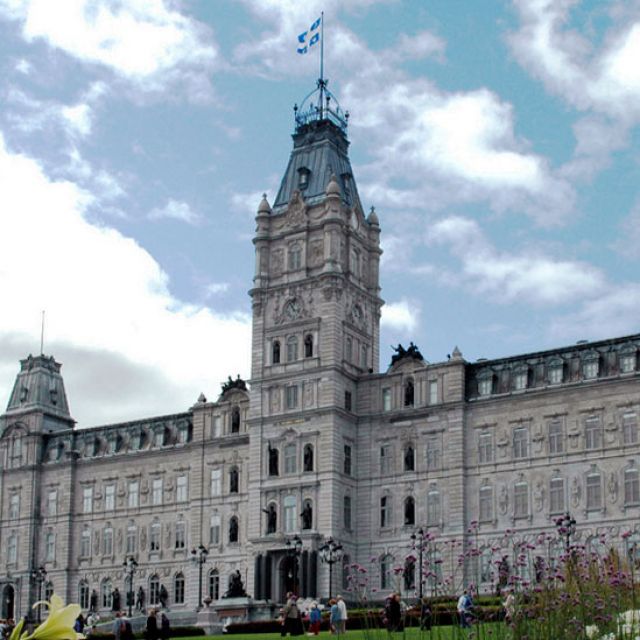Bill-60, now known as a “Charter Affirming The Values Of Secularism And The Religious Neutrality Of The State, As Well As The Equality Of Men And Women, And The Framing Of Accommodation Requests,” would require all employees in the public sector — from health care, to education, the public service and the judiciary — to avoid wearing any religious clothing, headgear or large crucifixes or other jewelry that identify their faith.
“There does not seem to be any need, except in a few cases, to restrict the rights and freedoms of public employees regarding the wearing of religious symbols,” said Assembly of Catholic Bishops of Quebec president Archbishop Pierre-Andre Fournier in response to the tabling of Bill-60 in the Quebec National Assembly Nov. 7. “What’s important is their competence, their welcome and their respect.”
The only requirement needed concerns the importance of uncovering the face to provide or receive public services, he said.
Fournier said it is reasonable for the state to want to provide legal guidelines for requests for religious accommodation. Clarification is needed to avoid “unnecessarily distressing” situations.
Many philosophers and jurists have not agreed on the distinction among expressions such as separation of church and state, religious neutrality and the secular character of the state, Fournier said. It is often understood in a way that does not distinguish between the “neutrality of the state and the neutrality of its employees.”
In light of Quebec’s current social and cultural context, it’s also reasonable for state and municipal institutions to be secular, the archbishop said, noting the bishops’ assembly had already cited Jesus’ saying concerning giving to Caesar what is Caesar’s and to God what is God’s. Fournier described separation as a healthy distinction between the religious and political domains.
But on the spiritual and religious level, people are free to believe or not believe, he said. “This is fundamental.”
Religious neutrality means that the state has no preference in the matter: no official religion but no official atheism either, Fournier said. If the state is really neutral, it will take steps to ensure that people can live and express their faith freely, he said. That is the state’s duty.
Neutrality and secularism should not aim to remove religion from the public square but to create an environment where every person has freedom of conscience and religion as recognized in the Universal Declaration of Human Rights, he said.
Fournier said many collaborative efforts between municipalities and parishes that benefit everyone could be jeopardized, such as the sharing of local church buildings. He said it would be sad if the meaning of neutrality is misunderstood or the secular character of public institutions is interpreted “excessively” so these collaborations, that increase the capacity for mutual aid, solidarity and creativity in local communities, could be slowed or even blocked.
As for the crucifix in the Quebec National Assembly, Fournier noted a vote by elected officials put it there and the decision to remove it remains with them. If it is democratically decided to remove the crucifix, the bishops will “respect their decision,” he said.
But contrary to the view put forward by proponents of Bill-60 that the crucifix merely represents part of Quebec’s historical patrimony, Fournier said: “The crucifix is a representation of the ultimate act of love, that of Christ giving His life for the salvation of the world.”
“It is revered by millions of Christians of all nations, and by a big majority of Quebeckers,” he said. It is not an object for a museum or one element of past heritage, he said. It must be respected as a fundamental symbol of the Catholic faith.
The archbishop urged caution and invited the population to take part in the debate in a tone appropriate to making it a unifying project.


